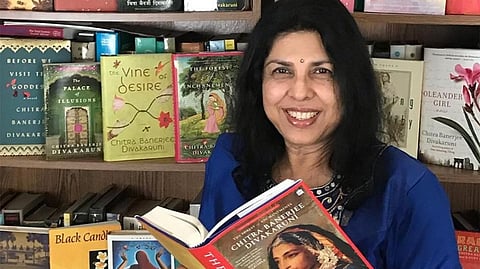Chitra Banerjee Divakaruni: ‘I never thought I’d be a writer’
Award-winning author Chitra Banerjee Divakaruni, whose recent book The Last Queen is soaring up the bestselling charts, tells of the immigrant’s life that inspired her critically acclaimed debut novel, and how writing about Sita from the Indian epic changed her life
Last updated:
10 MIN READ

The Last Queen
The Last Queen
The Last Queen
The Forest of Enchantments
Ramayana
Arranged Marriage
The Mistress of Spices
Sister of My Heart
Unknown Errors of our Lives
Palace of Illusions
Forest of Enchantments
The Last Queen
The Black Prince
The Last Queen
The Last Queen
The Last Queen
The Last Queen
The Last Queen
Get Updates on Topics You Choose
Up Next




